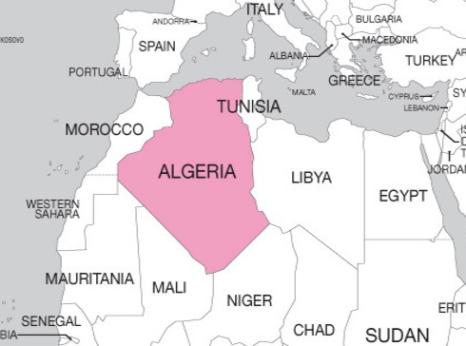Algeria: Quash Whistleblower’s Death Sentence

Mohamed Benhlima is an Algerian citizen who sought asylum in both Spain and France, a former military official, and whistle-blower who exposed the corruption of high-ranking Algerian military officials on a youtube channel and participated in peaceful protests against the Algerian authorities that started in Algeria in 2019.
Upon deportation to Algeria, the Algerian authorities widely mediatised Mohamed Benhlima’s “detention” and gravely violated his right to privacy as well as his fair trial rights, most notably his right not to be forced to testify against himself. Algerian national broadcasting services aired a video in which he “confesses” to the crimes of conspiracy against the state and affirms that he was not treated badly in custody. Mohamed Benhlima had himself released a video from the retention centre in Valencia, in Spain, before his forced deportation to Algeria, in which he warns that such videos would not be genuine and would show that he “was subjected to severe torture at the hands of intelligence services”.
According to the information that Amnesty International obtained, Mohamed Benhlima arrived in Spain on 1 September 2019 through a valid Schengen visa. He filed for asylum in Spain and received a residence permit from Spanish authorities, which he renewed and was valid until 5 November 2021. On 23 August 2021, he received a summons to the police station in Bilbao, Spain. Fearful of a possible extradition to Algeria, he fled to France shortly after. His fear of extradition was based on a similar case of extradition from Spain to Algeria of former military official and asylum-seeker Mohamed Abdellah on 20 August 2021.
Mohamed Benhlima was later arrested and brought back to Spain. On 14 March 2022, the Spanish authorities opened an administrative file of expulsion for infringement of Art. 54.1.a. of Immigration Law 4/2000, alleging that Mohamed Benhalima took part in "activities contrary to public security or which may be harmful for Spanish relationships with foreign states". The Spanish authorities justified the opening of an expulsion file against him based on Mohamed Benhlima’s alleged association with political opposition group Rachad, which was listed as a terrorist group by Algeria on 6 February 2022. The Spanish authorities claimed that Rachad’s objective was to infiltrate radical youth into Algerian society to protest against the Algerian government and concluded that the activist was a member of a terrorist group. However, the Spanish authorities did not provide any proof of use of violence, advocacy of hatred, or any other action taken by the activist that could be considered as “terrorism” in accordance with the definition proposed by the UN Special Rapporteur on the protection of human rights while countering terrorism. The Spanish authorities do not appear to have considered a context in which Algerian authorities have been increasingly levelling bogus terrorism and national security charges against peaceful activists, human rights defenders and journalists since April 2021.
On 27 December 2021, UN Special Procedures warned that the definition of terrorism in the Algerian Penal Code was too imprecise and undermined human rights. They stated that the procedure for registration on the national terrorist list did not comply with international human rights standards and expressed concern that it could give rise to abuse.
On 24 March, at around 7pm, Mohamed Benhlima’s lawyers were notified of the resolution of expulsion and promptly filed a request for an interim suspensive measure at the National Court of Spain, which was rejected; however, it was revealed later that the activist was already being escorted on a plane to Algeria at the time.